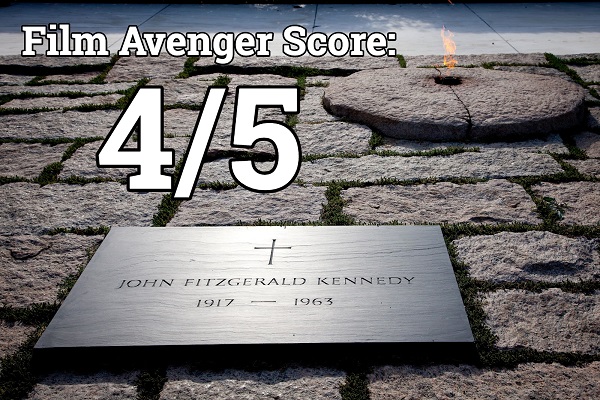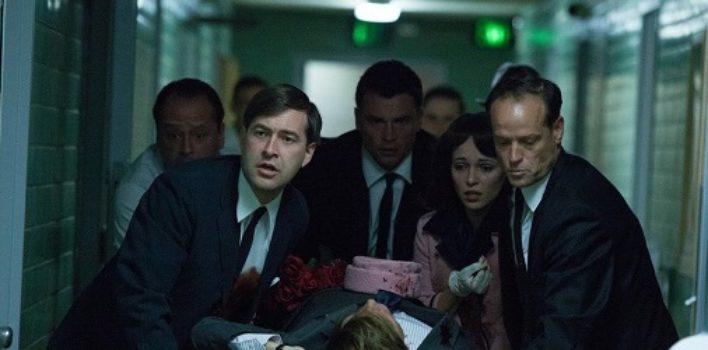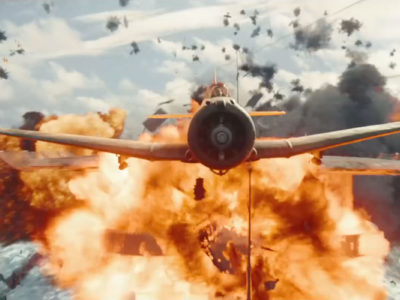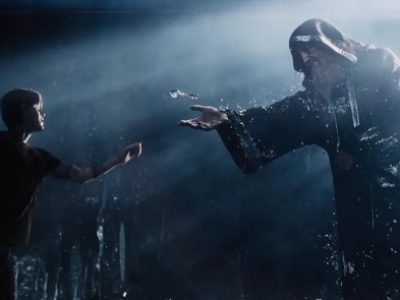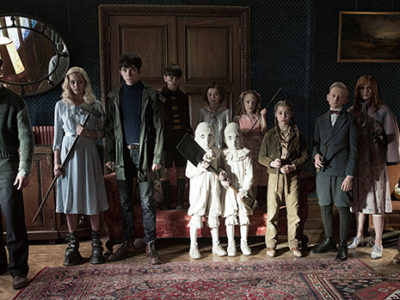Review | Parkland
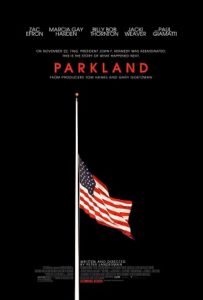 Watching Chappaquiddick last week, with its surprisingly straight retelling of a controversial historical event, brought to mind another excellent historical drama which involved another Kennedy. Though this film is decidedly more sympathetic to the Kennedy at thecenter of it.
Watching Chappaquiddick last week, with its surprisingly straight retelling of a controversial historical event, brought to mind another excellent historical drama which involved another Kennedy. Though this film is decidedly more sympathetic to the Kennedy at thecenter of it.
Very few historical events have captured the public imagination more than the assassination of President John F. Kennedy. The 2013 film Parkland attempts to shed some sobering light on this event and does a great job doing it. The film is a very real and intense look at those few hours in Dallas in November of 1963 and removes the veil of legend and purported conspiracy on what was a very tragic event.
With a stellar cast and almost constant tension, Parkland is a great piece of historical cinema and joins Chappaquiddick as another straightforward, unbiased look at a historical event. But I would expect nothing less from producer Tom Hanks and the rest of the group who produced such great historical dramas as Band of Brothers, The Pacific, John Adams, and From the Earth to the Moon.
In the midst of tearing the veil of legend, Parkland also gives the viewer a stark look at just how much the American public idolized John F. Kennedy. All their hopes for the future were placed on his weak and finite shoulders. Putting one’s faith in a person, especially a politician, is never a wise choice.
The Good: The Real Story
Like Chappaquiddick, Parkand’s greatest strength is its loyalty to truth and the facts of the historical event. There’s no giving credence to wild conspiracy theories. This isn’t an Oliver Stone-directed paranoid fantasy. The audience simply sees the events play out as factually as possible, based on actual evidence and witness testimony – no speculation. It’s a fair and unbiased look at history, which I greatly respect.
Writer/director Peter Landesman captures the chaos of the events almost perfectly. The tension lets up very little from the time that President Kennedy is shot to the last frame of the film. Every main character is living out their own story, and for a few brief moments, we see it from their perspective. The larger, well-known narrative is sometimes glossed over, but I think that’s what makes this film unique. It’s not about President Kennedy per se, but the people who were directly affected by the tragedy.
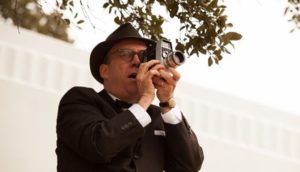 Furthermore, Parkland takes the sanitizing sheen away from the Kennedy assassination, which has plagued it almost since it happened, and brought it back to the horrific reality it was. Blood was everywhere, as it should be. It was messy, unrelenting, frenetic, and chaotic. None of the characters knew what was going on because no one really did during the event. Seeing it play out that way gave it even more emotional resonance.
Furthermore, Parkland takes the sanitizing sheen away from the Kennedy assassination, which has plagued it almost since it happened, and brought it back to the horrific reality it was. Blood was everywhere, as it should be. It was messy, unrelenting, frenetic, and chaotic. None of the characters knew what was going on because no one really did during the event. Seeing it play out that way gave it even more emotional resonance.
The characters’ reactions to the tragedy are also so crucial to the believability of the situation, and every single actor delivers here. The desperation, confusion, and grief were written all over their faces and made some scenes difficult to watch without also getting emotional.
Wrapping everything up in an emotional bow was the excellent musical score by James Newton Howard. Howard is one of the best composers at capturing the raw emotion of a scene. His string-based swells grab at one’s heart almost immediately – letting the audience feel the full emotional weight of tragedy. The solo piano gives a feeling of solitude and emotional loneliness that comes with a death in a family. And the solo brass melodies that punctuate the score remind one of a military funeral.
The Bad: Questionable Creative Choices
While Peter Landesman may have excelled at capturing the emotional chaos of the Kennedy assassination, the overuse of shaky-cam was a constant distraction. Now there were times when the shaky-cam was useful – like in Dealey Plaza during the shooting and in Parkland Hospital. But Landesman used it in every single shot. It’s a very modern convention, so it sometimes took me out of the movie’s tense atmosphere.
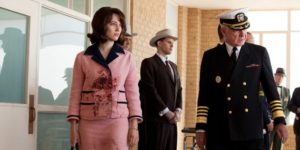
While I do salute the film’s slavish push for accuracy, the use of real vintage film footage was awkward in places. This wasn’t because of the accuracy of the event being recreated, but the fact that the actors didn’t resemble their real counterparts enough to blend well with the real footage. I know this may seem like small potatoes, but in a historical drama, it’s crucial. It takes the audience out of the movie. The audience needs to believe that the actor is the real person in that story. Seeing (or hearing) the real people next to the actor was distracting.
The Prince Falls
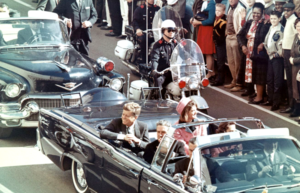 Watching Parkland gave me a profound new understanding of that time period and American culture generally. To be sure, the death of President John F. Kennedy was a very sad event, and the film brilliantly shows how the country grieved. However, so many of the characters were absolutely enthralled with Kennedy. Many Americans hung their hopes and dreams on a man. A man. That really gave me pause.
Watching Parkland gave me a profound new understanding of that time period and American culture generally. To be sure, the death of President John F. Kennedy was a very sad event, and the film brilliantly shows how the country grieved. However, so many of the characters were absolutely enthralled with Kennedy. Many Americans hung their hopes and dreams on a man. A man. That really gave me pause.
When it all ended in November of 1963, all those people in the hospital surrounding their great man, as he lay in a mess of blood and brain matter, could not do anything to stop him from dying. Compound that with the realization by many of them for the first time that JFK was suffering from a debilitating disease which forced him to wear a back brace. The shock and disappointment were palatable. When JFK died, the veil of Camelot was torn and the people’s dreams seemed to die with him.
They found out their idol was a man and not a god.
“Do not put your trust in princes, in human beings, who cannot save. When their spirit departs, they return to the ground; on that very day their plans come to nothing.” Psalm 146:3-4
All men succumb to death. But only One had the power to overcome it.
 The first two laws given to Moses by God at Mount Sinai dealt with putting God first, and there’s a good reason. Without first establishing that there are no other gods before God, we cannot have a proper relationship with our Creator. These graven images and idols can get in the way of our relationship with God.
The first two laws given to Moses by God at Mount Sinai dealt with putting God first, and there’s a good reason. Without first establishing that there are no other gods before God, we cannot have a proper relationship with our Creator. These graven images and idols can get in the way of our relationship with God.
Men are flawed and can change at the drop of a hat. Politicians especially can disappoint, and do so frequently. God doesn’t change. He remains as He was for all time. He is the true rock in the stormy seas of this world. Human beings cannot save us from our sins; only God can. And it’s important that we keep that in mind and really think about just how much time and effort we place in worshipping other things in this world.
“Jesus Christ is the same yesterday, today, and forever.” Hebrews 13:8
The Final Word
The assassination of John F. Kennedy has fascinated the American culture since it happened over 50 years ago. Parkland captures the horror, sadness, and simple humanity of that day in a way no other film on the subject has – and it did it without giving in to all the silly conspiracy theories.
A man is just a man – even if he is beloved by many. This film showed just how fragile a man can be, and how putting all one’s hopes and dreams into a finite and flawed human being can lead to feelings of hopelessness and desperation. A man can be brought down by the smallest and most random of things. But God is, was, and always will be. We must look to God first above everything else. He is the one to follow through all the storms of life, for He is the only one with the power to calm those storms and enact true peace.
